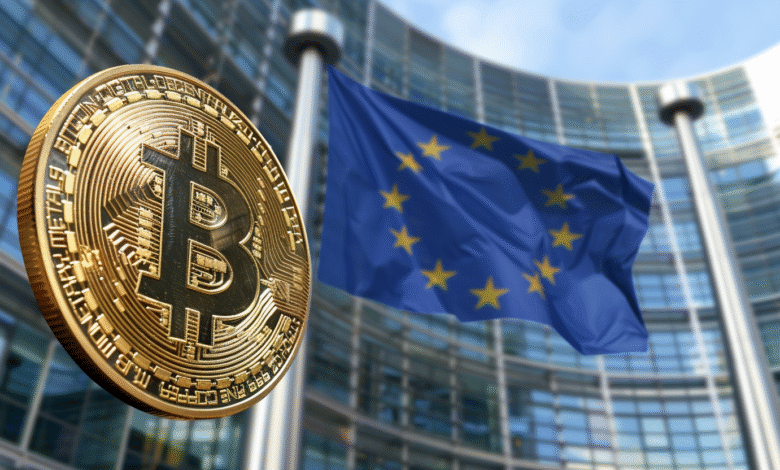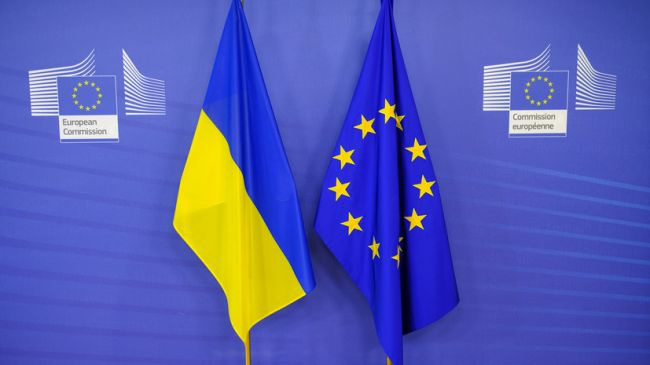
Bitcoin Trading Regulations in Europe Complete 2025 Guide for Crypto Traders
The landscape of bitcoin trading regulations in Europe has undergone a significant transformation in recent years, creating both opportunities and challenges for cryptocurrency traders and businesses. With the implementation of the Markets in Crypto-Assets (MiCA) regulation and varying national frameworks, understanding the regulatory environment has become crucial for anyone involved in digital asset trading across European Union member states.
Whether you’re an individual trader, institutional investor, or cryptocurrency business, navigating these complex regulations requires comprehensive knowledge of current legal requirements, compliance obligations, and emerging trends that shape the European crypto market.
Understanding the Current European Regulatory Framework for Bitcoin Trading
The regulatory landscape for cryptocurrency trading in Europe operates on multiple levels, combining EU-wide directives with individual country-specific implementations. The cornerstone of modern bitcoin trading regulations in Europe is the Markets in Crypto-Assets (MiCA) regulation, which came into full effect in 2024, establishing a unified framework across all 27 EU member states.
The MiCA Regulation A Game Changer for Crypto Trading
The MiCA regulation represents the most comprehensive attempt to regulate cryptocurrency activities in Europe. This landmark legislation covers various aspects of crypto-asset services, including trading platforms, custody services, and market manipulation prevention. Under MiCA, crypto-asset service providers must obtain proper authorization from national competent authorities, implement robust risk management systems, and maintain adequate capital reserves.
Key provisions of MiCA include mandatory licensing for crypto exchanges, strict customer protection measures, and comprehensive reporting requirements. The regulation also establishes clear rules for stablecoins, asset-referenced tokens, and other digital assets, providing much-needed clarity for market participants.
National Implementation Variations
While MiCA provides the overarching framework, individual EU countries maintain some flexibility in implementing specific provisions. Countries like Germany, France, and the Netherlands have developed sophisticated regulatory approaches that go beyond minimum MiCA requirements, while others have adopted more basic compliance frameworks.
Germany’s Federal Financial Supervisory Authority (BaFin) has been particularly proactive, requiring crypto businesses to obtain specific licenses and implement stringent anti-money laundering measures. France’s Autorité des Marchés Financiers (AMF) has established a voluntary licensing regime that many crypto businesses have embraced to demonstrate regulatory compliance.
Bitcoin Trading Regulations in Europe Key Compliance Requirements
Operating within the European cryptocurrency trading environment requires adherence to multiple regulatory obligations. These requirements span customer identification, transaction monitoring, capital adequacy, and operational resilience.
Licensing and Authorization Requirements
All crypto-asset service providers operating in Europe must obtain appropriate licenses from their respective national authorities. The licensing process typically involves demonstrating adequate capitalization, implementing robust governance structures, and establishing comprehensive risk management frameworks.
For bitcoin trading platforms, specific requirements include maintaining segregated customer funds, implementing market abuse prevention measures, and providing clear disclosure about trading risks. Platforms must also establish complaint handling procedures and maintain adequate professional indemnity insurance.
Anti Money Laundering and Know Your Customer Obligations
European bitcoin trading regulations mandate strict adherence to anti-money laundering (AML) and know your customer (KYC) requirements. These obligations align with the EU’s Fifth Anti-Money Laundering Directive (5AMLD), which explicitly includes cryptocurrency exchanges and wallet providers within its scope.
Trading platforms must implement comprehensive customer due diligence procedures, including identity verification, source of funds documentation, and ongoing transaction monitoring. Suspicious activity reporting requirements apply to all transactions exceeding €10,000 or displaying unusual patterns that might indicate money laundering or terrorist financing.
Country Specific Bitcoin Trading Laws Across Major European Markets

Germany Leading European Crypto Innovation
Germany has emerged as a leader in cryptocurrency regulation, with BaFin providing clear guidance on bitcoin trading activities. The country recognizes bitcoin as a financial instrument, subjecting trading activities to comprehensive regulatory oversight.
German crypto exchanges must obtain banking licenses and comply with strict capital adequacy requirements. The country’s progressive approach has attracted numerous cryptocurrency businesses, making it a hub for European crypto innovation while maintaining high regulatory standards.
France Balanced Regulatory Approach
France has implemented a voluntary licensing regime through its PSAN (Prestataires de Services sur Actifs Numériques) framework. While not mandatory under current regulations, many crypto businesses seek PSAN registration to enhance credibility and demonstrate regulatory compliance. The French approach emphasizes consumer protection while fostering innovation. Registered platforms benefit from enhanced legitimacy and can offer services to institutional clients who require regulatory certainty.
Netherlands Stringent Oversight Model
The Netherlands has implemented some of Europe’s strictest cryptocurrency regulations, requiring all crypto service providers to register with the Dutch Central Bank (DNB). The registration process involves extensive documentation and ongoing compliance monitoring.
Dutch regulations particularly focus on preventing money laundering and terrorist financing, with severe penalties for non-compliance. The country’s approach has resulted in a smaller but highly compliant crypto ecosystem.
Tax Implications and Reporting Requirements for Bitcoin Trading
European bitcoin traders must navigate complex tax obligations that vary significantly across different jurisdictions. Understanding these requirements is essential for maintaining compliance and avoiding potential penalties.
Capital Gains Tax Treatment
Most European countries treat bitcoin trading gains as capital gains, subject to varying tax rates depending on holding periods and individual circumstances. Some jurisdictions offer reduced rates for long-term holdings, while others apply uniform taxation regardless of holding duration.
Professional traders may be subject to income tax rather than capital gains tax, with different rates and deduction opportunities. The distinction between casual and professional trading varies by country and depends on factors such as trading frequency, profit margins, and time dedication.
VAT Considerations for Crypto Transactions
The European Court of Justice has ruled that bitcoin-to-fiat currency exchanges are exempt from Value Added Tax (VAT), providing clarity for basic trading activities. However, VAT implications may arise for certain services, such as trading platform fees or wallet services. Businesses providing cryptocurrency-related services must carefully analyze VAT obligations, as different activities may be subject to varying treatment under national VAT regimes.
Digital Asset Service Providers Licensing and Operational Requirements
Authorization Procedures for Crypto Exchanges
Obtaining authorization to operate a cryptocurrency exchange in Europe involves extensive documentation and regulatory review. Applicants must demonstrate technical competence, financial adequacy, and regulatory compliance capabilities.
The authorization process typically includes detailed business plan submission, proof of adequate capitalization, demonstration of operational resilience, and evidence of appropriate governance structures. Regulatory authorities conduct thorough assessments that can take several months to complete.
Ongoing Compliance Obligations
Licensed crypto service providers must maintain continuous compliance with regulatory requirements, including regular reporting, audit submissions, and regulatory capital maintenance. Failure to meet ongoing obligations can result in license suspension or revocation.
Key ongoing requirements include customer complaint handling, incident reporting, and cooperation with regulatory investigations. Platforms must also maintain comprehensive records of all transactions and customer interactions for regulatory examination purposes.
Consumer Protection Measures in European Bitcoin Trading

Disclosure Requirements and Risk Warnings
European regulations mandate comprehensive risk disclosure for cryptocurrency trading services. Platforms must communicate the volatile nature of bitcoin prices, potential for total loss, and lack of investor compensation schemes.
Risk warnings must be prominently displayed and regularly updated to reflect current market conditions. Platforms must also provide educational resources to help customers understand cryptocurrency trading risks and mechanics.
Compensation and Dispute Resolution
Unlike traditional financial services, cryptocurrency trading platforms typically do not participate in investor compensation schemes. However, platforms must establish internal dispute resolution procedures and provide access to alternative dispute resolution mechanisms.
Some jurisdictions are exploring cryptocurrency-specific compensation frameworks, though these remain in early development stages. Customers should understand the limited recourse available in case of platform failure or disputed transactions.
Cross Border Trading Considerations and Regulatory Arbitrage
Passporting Rights Under MiCA
The MiCA regulation introduces passporting rights, allowing authorized crypto service providers to offer services across all EU member states based on their home country authorization. This development significantly simplifies cross-border operations for compliant platforms.
However, platforms must still comply with local marketing rules and may face additional requirements in jurisdictions where they operate. Understanding local variations remains important despite harmonized authorization procedures.
Regulatory Shopping Risks
While regulatory arbitrage opportunities may exist, crypto businesses should carefully consider long-term sustainability and reputational implications. Choosing jurisdictions based solely on lenient regulations may backfire as regulatory frameworks continue evolving.
The trend toward harmonization means that regulatory advantages may be temporary. Businesses should focus on building robust compliance frameworks that can adapt to changing requirements rather than seeking regulatory shortcuts.
Emerging Trends and Future Developments in European Crypto Regulation
Central Bank Digital Currencies (CBDCs) Impact
The European Central Bank’s digital euro project may significantly impact bitcoin trading regulations. As CBDCs develop, regulators may implement new requirements for private cryptocurrency platforms to ensure interoperability and prevent regulatory conflicts. Bitcoin trading platforms should monitor CBDC developments and prepare for potential integration requirements or competitive challenges from official digital currencies.
Sustainability and Environmental Regulations
Growing environmental concerns about cryptocurrency mining and trading may lead to additional regulatory requirements. Some European jurisdictions are considering energy efficiency standards for crypto operations and carbon disclosure requirements. Bitcoin trading platforms may need to implement environmental reporting and demonstrate efforts to reduce their carbon footprint. These requirements could affect platform operations and customer disclosure obligations.
Best Practices for Compliance with European Bitcoin Trading Regulations
Implementing Robust Compliance Programs
Successful compliance requires comprehensive programs covering all regulatory requirements. Key components include staff training, regular compliance monitoring, documentation management, and regulatory change tracking.
Platforms should establish clear compliance policies, regular audit procedures, and escalation mechanisms for regulatory issues. Investment in compliance technology and expertise is essential for maintaining regulatory good standing.
Staying Updated with Regulatory Changes
European cryptocurrency regulations continue evolving rapidly. Platforms must establish mechanisms for tracking regulatory developments across relevant jurisdictions and implementing necessary changes promptly. Regular engagement with regulatory authorities, industry associations, and legal advisors helps maintain awareness of emerging requirements and best practices. Proactive compliance approaches generally yield better outcomes than reactive responses to regulatory changes.
Technology and Security Requirements for Bitcoin Trading Platforms
Cybersecurity Standards and Data Protection
European bitcoin trading platforms must implement robust cybersecurity measures to protect customer funds and personal data. These requirements align with GDPR data protection obligations and specific financial services cybersecurity standards.
Key security requirements include multi-factor authentication, cold storage for customer funds, regular security audits, and incident response procedures. Platforms must also implement comprehensive data encryption and access controls to prevent unauthorized access.
Operational Resilience Requirements
Regulatory authorities expect bitcoin trading platforms to maintain high operational resilience standards. This includes backup systems, disaster recovery procedures, and business continuity planning. Platforms must demonstrate the ability to continue operations during various disruption scenarios and maintain customer access to funds and services. Regular testing and documentation of resilience measures are required for regulatory compliance.
Also Read: Bitcoin Margin Trading Platform News, Latest Updates & Market Insights 2025
Conclusion
Understanding and complying with bitcoin trading regulations in Europe requires ongoing attention to both EU-wide frameworks and national implementations. The regulatory landscape continues evolving, with MiCA providing foundational structure while individual countries develop specific requirements.
Success in the European bitcoin trading environment depends on maintaining comprehensive compliance programs, staying informed about regulatory developments, and implementing robust operational and security measures. Whether you’re an individual trader or business operator, investing in regulatory understanding and compliance capabilities is essential for long-term success.
For businesses considering European expansion or individuals planning bitcoin trading activities, consulting with qualified legal and compliance professionals familiar with bitcoin trading regulations in Europe is strongly recommended. The complexity and evolving nature of these regulations make professional guidance invaluable for ensuring full compliance and avoiding potential penalties.







